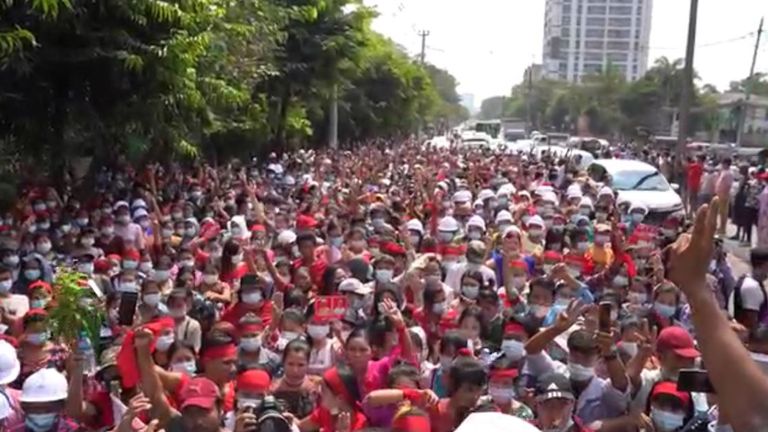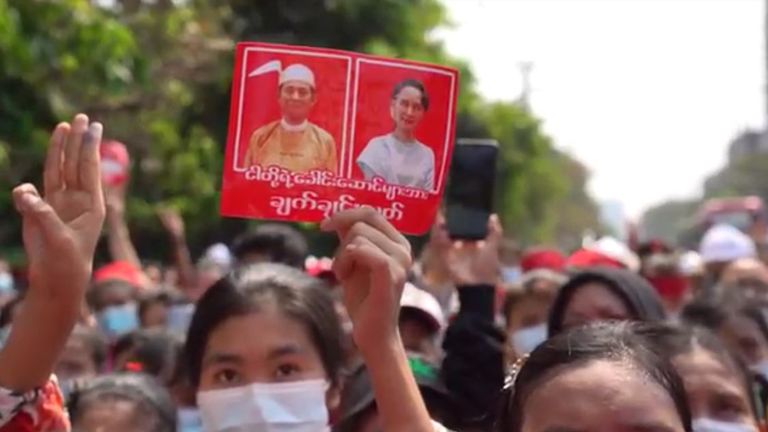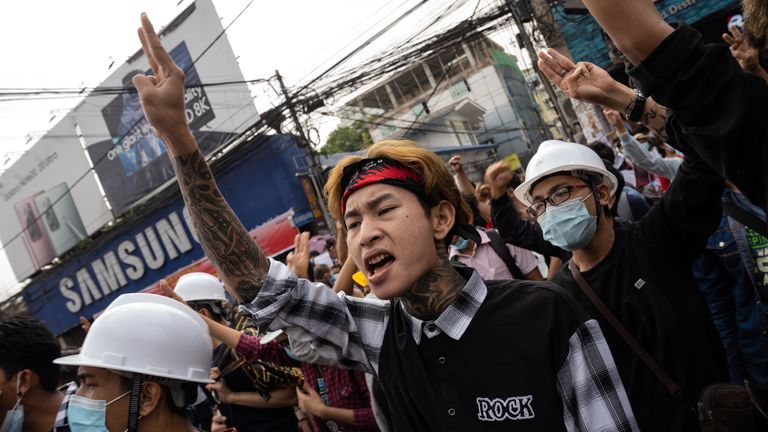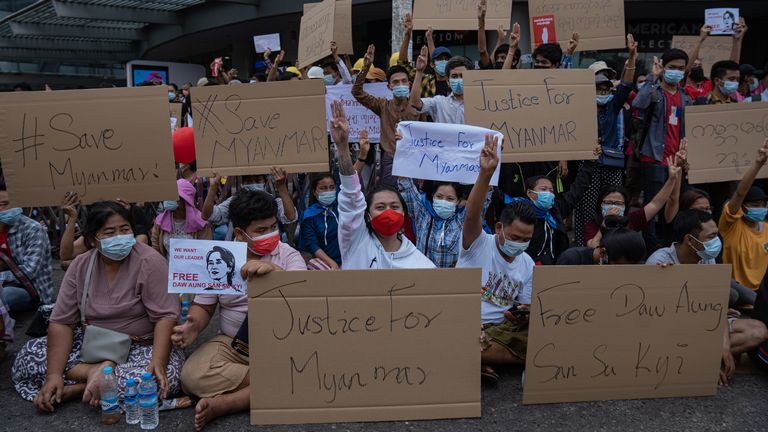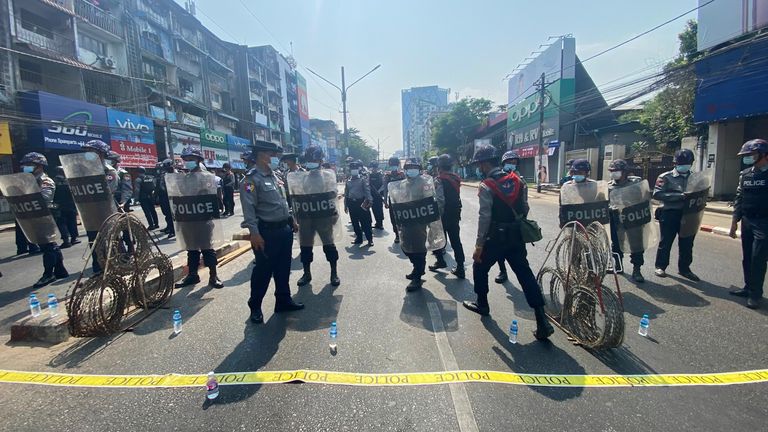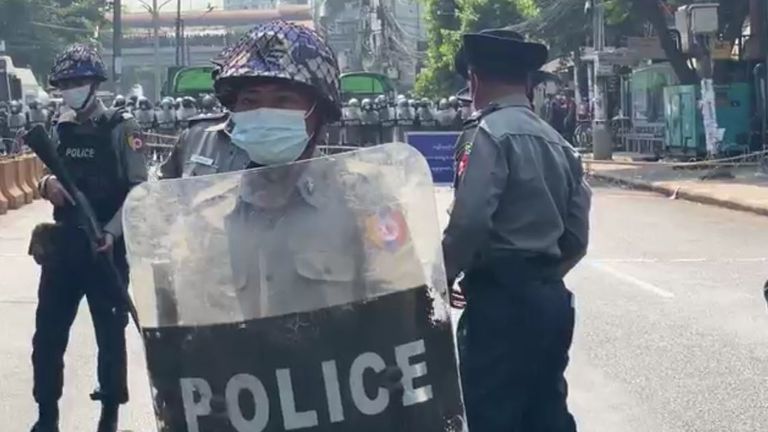Tens of thousands of protesters took to Myanmar’s streets on Saturday to denouce the coup despite the internet being cut off by the junta.
Protesters across the country’s cities also demanded the release of democratically elected leader Aung San Suu Kyi.
In Yangon, the country’s largest city, protesters chanted: “Military dictator, fail, fail; democracy, win, win.”
As they were met by more than 100 police in riot gear, they held banners reading: “Against military dictatorship.”
Protesters gave a three-finger salute, a symbol of defiance adopted from protesters in neighbouring Thailand, who borrowed the gesture from the Hunger Games movie franchise.
Food and water were offered to the growing numbers of protesters as they marched to gain back their hard-fought and fragile democratic rights.
Late in the evening, a rumour of Ms Suu Kyi’s release triggered noisy street celebrations, with cheering and firecrackers being let off.
Residents said the message had been shared by the military-run media Myawaddy.
But the detained leader’s lawyer, Khin Maung Zaw, denied the 75-year-old had been freed and said she was still in detention.
Her National League for Democracy (NLD) won the 8 November elections in a landslide but the military generals have refused to recognise the result, claiming it was fraudulent.
Earlier on Saturday, thousands marched to Yangon’s City Hall, with drivers honking horns and raising the three-finger salute as protesters did the same.
The protesters had mostly gone home by nightfall as a curfew set in but people banged on pots, pans and drums for the fifth night in a row in a show of resistance.
In Myanmar‘s second city, Mandalay, and its military-built capital, Naypyidaw, thousands more marched as demonstrators chanted anti-coup slogans and called for Ms Suu Kyi’s release.
Despite the internet being blocked, the number of protesters continued to grow while the state-run broadcaster MRTV showed scenes praising the military.
A “national-scale internet blackout” was reported by monitoring group NetBlocks Internet Observatory.
It said connectivity had fallen to 16% of usual levels.
Twitter and Instagram became the latest social media platforms to be blocked, following Facebook earlier this week.
Facebook, which is used by half the population, called for the junta to unblock social media.
“At this critical time, the people of Myanmar need access to important information and to be able to communicate with their loved ones,” Facebook’s head of public policy for Asia-Pacific emerging countries, Rafael Frankel, said in a statement.
The UN’s human rights office said: “Internet and communication services must be fully restored to ensure freedom of expression and access to information.”

